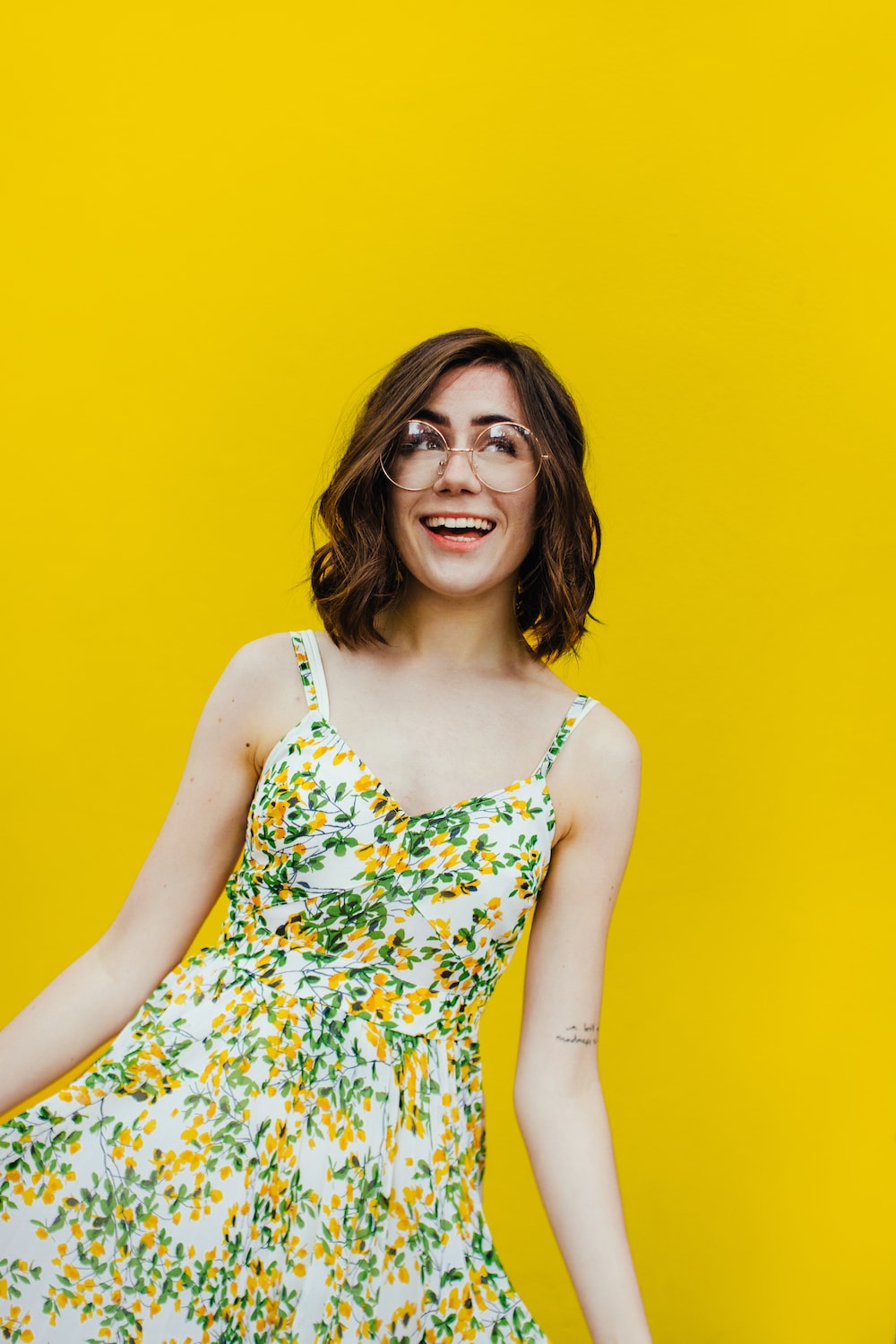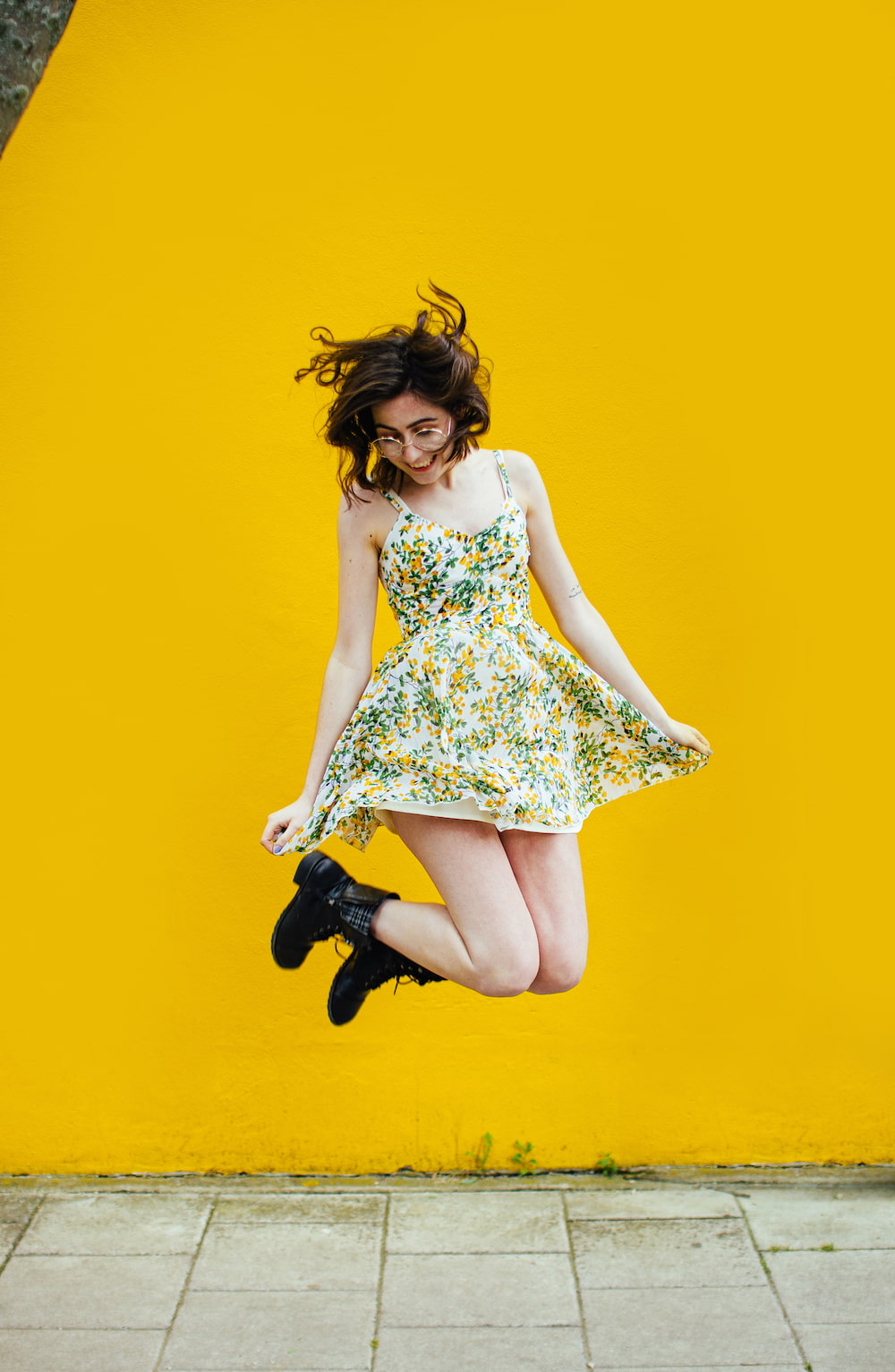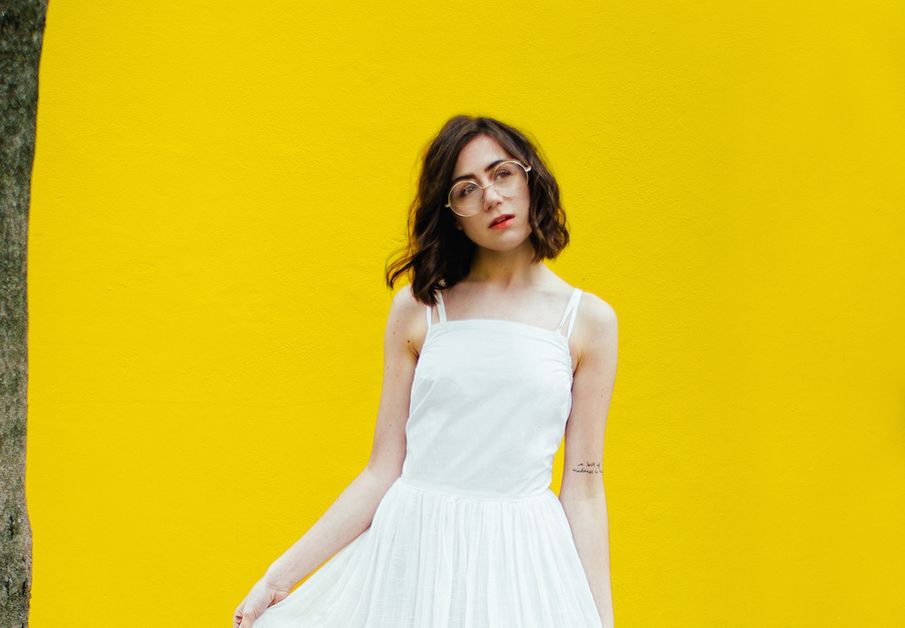Known for her sweet, understated vocals and infatuating personality, British singer-songwriter and YouTuber Dodie Clark (just call her dodie) speaks to Happiful about her daily struggles with one of society’s lesser-known mental illnesses

dodie
When dodie’s EP You came out in August this year, she took the music industry by surprise. Despite being an unsigned artist, her EP reached number six on the official UK album chart. But for the near two million people who follow dodie across her two YouTube channels – doddleoddle and doddlevloggle – the music she makes touches a more personal note.
The 22-year-old’s own struggles with mental illness are well-documented in her lyrics and YouTube videos. And it’s her unique ability to be totally vulnerable, yet extraordinarily articulate about her experiences, that captivates the legions of fans who follow her. Happiful speaks with dodie about her audience-turned-support group, and her recent cutting-edge treatment.
I’ve always been a very open person, I always let people know how I’m doing and what I’m feeling anyway. But that can also be a problem in itself, because I don’t always know when to stop, or who to take my problems to. Being mentally ill can make your judgement a bit skewed, so sometimes I might overshare too much, especially online, but I still think it’s important to talk about it.
Yes, I definitely think so. But I think it’s important to talk about it after a bit of distance. I’ve noticed that when I’ve been particularly depressed, my viewpoint is skewed and I don’t really know what I’m saying, I might not even believe what I’m saying, so I definitely shouldn’t be putting it out there. Sharing it from a healthy point is much more helpful because then people can see all aspects of it, and if they can relate to some of the darker things that I’ve been thinking, maybe they can see that they’re not alone in their thoughts and that you can get through it. It’s like a big, wonderful support group.

Sit down, be kind, and listen. With the thing that I’ve got, depersonalisation or derealisation, it’s not really well known about and because it’s something that you may not quite understand yourself, it can be easy to think that they’re just making it up. But believe them, and support them in trying to find help.
I described it being like taking out my phone camera and not pressing record, just looking at the world through the screen. And a lot of people said that it might be “disassociation”. So I started googling it and found terms, like “derealisation”
and “depersonalisation”. I just sat and cried over the Wikipedia page because it described exactly how I was feeling. I couldn’t believe it was a thing that other people dealt with too. And then, once I knew the name, I took it to the doctors and finally got a diagnosis.
It was after I started experiencing derealisation, because I noticed that I wasn’t getting as much out of events and going out, because everything felt grey, and I couldn’t connect with anything anymore. So it started to creep in as I found myself feeling disappointed all the time.
Yes, I am in therapy now. It’s really great, it helps my depression like nothing else can. It’s wonderful.

I shopped around with therapists, and there’s no shame in that. It almost feels like a first date when you try someone new. You’re just testing them out, and if you don’t feel comfortable you don’t have to go back. It does feel awkward to do that, but it’s their job and they will understand. I’ve been to a few different therapists. I had one for five appointments and then I realised that she wasn’t right, and I went to another one just the once. But I’m with one right now who I think is really great.
There are all different types of therapists. Some are closed off and will just let you talk. My therapist is more personal and humanistic, and she will share her opinions as well, and talk with me, and I really like that. I like bouncing off each other. I had a therapist before who would laugh at the things I said, and I know that sounds patronising, but it was actually really nice because I liked getting out my problems and then making them appear lighter.
Yes, I had my worries about it at first! It feels really strange. It doesn’t hurt, it just feels like someone tapping on your brain, but that can be kind of scary because...it’s your brain! I think I was more nervous about the chance that it would work because I imagined feeling present again and how strange that would feel. And obviously I was so excited about that, and I pegged so much on it working, and then it didn’t really do anything.

Well, I think self-care is incredibly important. Just the basics – that you’re well-rested and that you’re clean. If you find that you do have everything that you need, and you’ve ticked off the self-care list, and you still feel depressed, allow yourself that. Say, that it’s OK and that it will pass. I also have two tattoos, that remind me to practise self-care.
I got one quite recently which is a sprig of lavender. My mum loves lavender and she always tells me to look after myself, and I think that’s such a helpful message to have on my body. The other one is a quote from La La Land, and it says: “A bit of madness is key”. It helps me to remember that my mental health problems have a purpose. When I’m feeling low, it reminds me that this makes me special, and it helps me write and it helps me empathise with people.
Yes, and I’d already written parts because I just write all the time anyway when I’m going through hard times. The actual typing was so therapeutic because it was like going through every experience and then wrapping it up and tying it with a bow. It was just so nice to revisit different states of my mind, and look back and see how much I learnt from it.
"I might overshare too much, but I still think it’s important to talk about it"
I wrote that little section on suicide when I was feeling suicidal. Going back to it when I was feeling better was difficult, because I was scared to go back and jump back into brain patterns. I had to approach it with caution, and remember that I feel better now – and I can go back to feeling better again in the future.
For sure. When I was in school I remembering fancying boys and girls, but because I fancied boys I just thought I was straight, I didn’t realise there was a middle ground. I knew I wasn’t a lesbian, but I fancied girls, so just assumed that everyone fancied girls, but was just secret about it! I found out who I was later in life, but I wish I knew earlier.

I’m lucky that I surround myself with people who are very open and are in the LGBTQ+ community themselves. But outside of that, if I mention that I’m seeing a woman, if it’s a guy they might say, “Oh, that’s really cool!”, and I’m like, “It’s not cool, it’s just my life.” I think, self-consciously, there was a part of me who wanted this label so that people would understand, but it’s also been so validating to myself.
Yes, it’s going well thank you! We started in Ireland and now we’re back in England, we’re in Birmingham at the moment. Travelling is a little bit tricky for me. It confuses me and makes me more spaced out. I struggle more with mental health when I’m travelling. But I’m surrounded by lovely people, and that always helps.
No, I really love it! When I get on stage I like looking into people’s eyes and seeing them sing along with me. Sometimes it’s tricky to get back into that frame of mind, but overall I find it so therapeutic.
I usually tend to love the one I’ve written most recently. But I think, overall, it’s a song called When, because I think it sums up the things that go on in my brain. But in a really nice way.
‘Secrets For The Mad: Obsessions, Confessions, And Life Lessons’ (Ebury Press, £16.99)


Comments